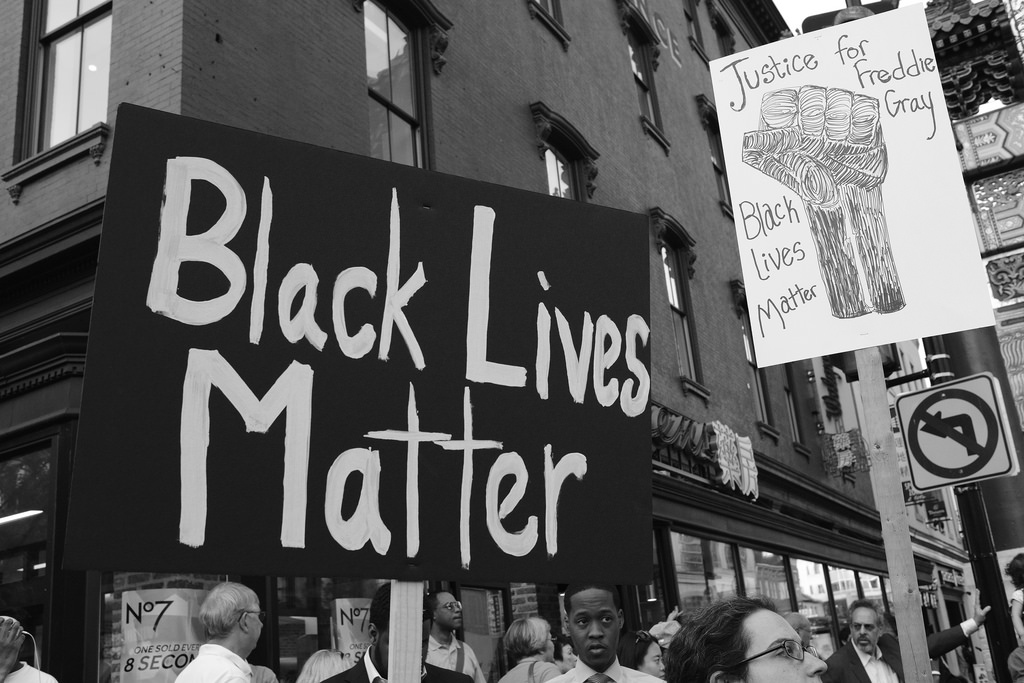By Matthew Pertz, Opinions Editor
Black lives matter.
Does that sentence make you uncomfortable? It’s obvious black lives matter, right? All lives matter!
When first faced with this issue, I had to think about the word “life” as more than just surviving. My life is my family and friends. My life is my charter school education and my current life at Asbury. My life is a cushy suburban home in North Carolina. My life is my job at a driving range for which I got paid far too much. My life is the collection of people who invested in me because they saw the best in me.
Then I remember how all aspects of my life were overbearingly white. I had my schools, my neighborhood, and my job all because I was white.
Suddenly, I find it incredibly tiring to think about how society devalues an entire race, and if thinking about race is so exhausting, I can’t imagine how impossibly difficult it is to live out race.
For years now, I’ve thought that the best way to manage my white privilege is to check it at the door and try to humble myself, but that is a failing approach. I can still stop at any gas station in rural America and feel safe. I can still drive without having my car searched because twenty-first century “probable cause” mean the color of my skin. I’ll never have to tell my kids “Life is going to be harder for you, and there’s nothing you can do about it.” My whiteness maintains my status as innocent until proven guilty, not the other way around.
But shaming myself for my race doesn’t help anybody. Instead, I need to use my voice and my privilege as a means of uplifting others. As a white male, I have an automatic pedestal simply because of my demographic. My innate boost in society is my opportunity to give a voice to the wrongly disadvantaged.
Black writers who call for further racial justice tend to be mocked and dismissed by the white majority. The Atlantic’s Ta-Nehisi Coates wrote many renowned pieces on racism in America, including his acclaimed essay “The Case for Reparations”. The Daily Caller, an online publication edited entirely by white people, said Coates is “demanding an impossible price from whites.”
Reparations are further from “impossible” and closer to “necessary”. After the Civil War ended in 1865, the government issued 40 acres of land and a mule to former slaves, but the land was repossessed and given back to whites in 1867.
In the decades since, there have been countless more racial injustices against the black community. Public lynchings. Redlining real estate. Biased college admissions. Unjust profiling from law enforcement. These crimes are exclusive treatment from the white community to the black.
The US Government officially apologized for slavery in 2008, 145 years after the Emancipation Proclamation was passed. After nearly a century and a half of denial, simply saying sorry isn’t enough. Making real progress to give blacks a level playing field is the first step to showing that black lives matter in our society.
Black Lives Matter is not just about saving lives. It’s about improving livelihoods.
It’s time for more affirmative action jobs so that black men and women are guaranteed work. Colleges must be proactive in offering financial aid to lower class students (a predominantly black group) so that continued education is a possibility instead of a fantasy. Police officers need to be held under increased scrutiny so that black drivers feel protected instead of persecuted.
Black Lives Matter is not just about saving lives. It’s about improving livelihoods. The Declaration of Independence reads “We hold these truths to be self-evident, that all men are created equal, that they are endowed by their Creator with certain unalienable Rights, that among these are Life, Liberty and the pursuit of Happiness,” but in the 239 years since that document was written we as a nation have failed to give all men (and women) those same rights. It’s time to give all people, black and white, the life, liberty and happiness they deserve.


